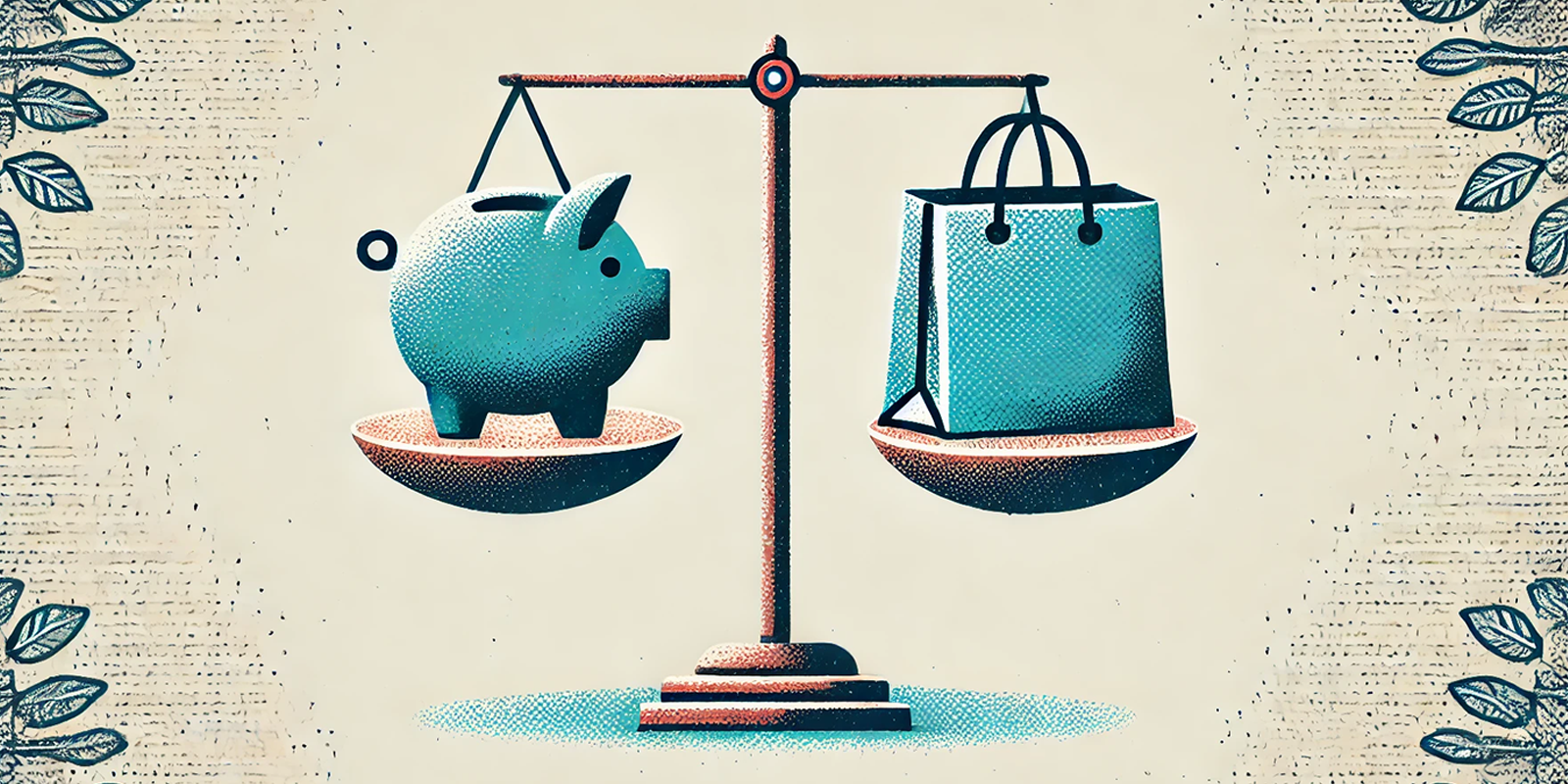How to find the right financial balance: saving and spending wisely

When it comes to personal finances, it sometimes feels like there are only two goals: purchasing a home and saving for a comfortable retirement.
And it’s no wonder these two holy grails get so much attention: Making a down payment on your first home and saving enough money for post-work are two of life’s biggest financial challenges. But in the race to achieve these milestones, don’t forget that there are other things you should be planning for, too.
What I mean by this is this:
I’m in my mid-40s (I refuse to say late 40s). I checked the “first home” box and am now in my second (and hopefully last) family home. But retirement is still 20 years or more away and I have a lot of life ahead of me until then.
As a woman – and self-employed at that – I know that I’m behind on my retirement savings and should really be saving as much as I can. However, as I get older, I’m increasingly aware that I also need financial advice, especially as ideas about work and retirement become more fluid.
One of my favourite TV shows at the moment is Mortimer and Whitehouse: Gone Fishing. I came to this show quite late (it’s now in its sixth season) – I guess I was disinterested because it was about fishing. But that’s not really what the show is about: it’s more about the friendship of these two comedians and the conversations they have about their careers, their health and wellbeing. It’s also about escaping the hustle and bustle of everyday life, getting back to nature and enjoying the peace and quiet. In fact, it’s a fantastic advert for retirement and it often inspires my husband and I to think about the trips we’d like to take and the benefits of owning our own motorhome.
But perhaps the most important thing I take away from the show is that you have to enjoy the here and now and make the most of what you have. The pair aren’t afraid to talk about death, aging and their health – Bob Mortimer himself married his long-term partner less than an hour before undergoing triple bypass surgery in 2015.
And I’m not saying, “Don’t worry about your retirement savings—you might not make it that long.” But I’m often reminded that life is short and that our retirement savings shouldn’t come at the expense of the years before. That’s why I’m not a huge fan of the whole FIRE (Financial Independence, Retire Early) movement. I’m just skeptical of the idea of sucking the life out of your 20s, 30s, and 40s for a future you can’t predict.
The truth is, finding the right balance between saving enough for the retirement you want and enjoying life now is no easy task. But here are five things I keep in mind as I look for the perfect middle ground.
1. Spend money on the things that are important to you.
In the world of financial planning, “spending” is sometimes a dirty word. Any excess money should be saved or invested, not spent. And of course, getting dinner delivered when my fridge is full of food is not a smart use of cash. But that doesn’t mean I have to dismiss the value of spending money on things I care about.
For example, my appetite for spending money on home improvements is waning, and I’ve long hated spending a penny more than necessary on cars. What I want is enough money for summer vacations, day trips, and nights on the town. Cosmetic home improvements can wait. And as for the car, if it’s up to me, we’ll drive it every mile.
2. Reduce your spending on things that are useless.
While I advocate spending money on things that nourish you and give you something to look forward to, I also firmly believe that spending should not come at the expense of your financial future. Going to the theater should not replace contributing to a retirement account.
And I think there is value in reducing spending on things that don’t enrich your life in the same way. This is where I think about taking the time to get a better deal on things like yours mortgageYour car and home insurance, and even your phone, TV and broadband.
There’s a lot to be said for going through your bank statements and looking for expenses that aren’t necessary or don’t benefit you—streaming services you no longer use, subscriptions you forgot about, free trials you meant to cancel, and so on.
3. Think ahead.
I tend to take life as it comes, but I’m increasingly realising how useful it is to think more carefully about what I would like to do and what I might need to do in the next few years. For example, taking a special trip before the kids leave home, making a major lifestyle change or being able to step in when parents need a little extra help.
And since it’s never too early to start thinking about how you want to retire, that’s what I’ve done. I’m not opposed to working until I retire and then gradually winding down – as long as I’m healthy enough and still have enough time for regular trips in this (still hypothetical) RV.
4) Organize your savings.
It is important to think about your savings strategy and where you will invest your spare money and allocate it between short-term, medium-term and long-term goals.
Set aside money for emergencies and known expenses in an easily accessible account – increasing interest Interest rates mean that you can get a pretty good interest rate on your money, at least for the time being.
And if you have some money that hasn’t already been used for a specific purpose and you don’t need it in the next five years, consider investing it in a tax-efficient account. In the US, a Roth IRA or in the UK, an Individual Share Savings Account (ISA) can be a good solution. They help your taxed money work a little harder. They can be a great way to add flexibility to your financial planning in the years leading up to retirement, whether you’re using it to help a child buy a house or to celebrate the empty nest with that holiday you’ve always wanted.
The money in these accounts can also be a boon when you eventually retire—it provides a helpful supplement to other income. That’s because money from Roth IRAs or ISAs is tax-free—unlike a 401(k) or UK pension, which get a tax break up front but are subject to tax when you withdraw it.
5. Think about protection.
If you want to enjoy your life and plan for the future, it makes sense to protect it too.
To ensure that your savings and future financial plans are not wiped out by illness – or death – consider products such as life insurance, income protection insurance and critical illness cover.



